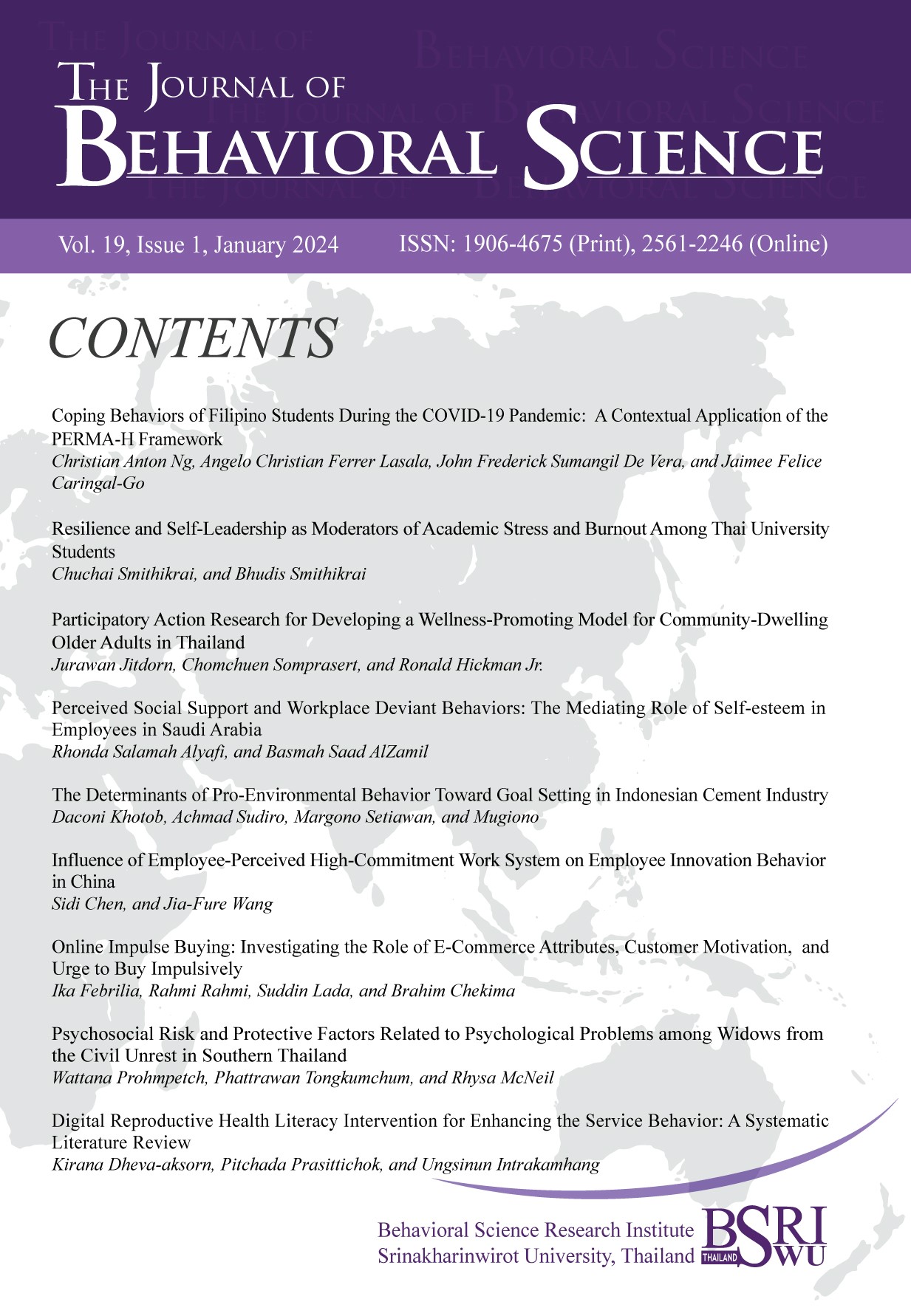Online Impulse Buying: Investigating the Role of E-Commerce Attributes, Customer Motivation, and Urge to Buy Impulsively
Main Article Content
Abstract
Online impulse buying is shaped by both external e-commerce factors and individual psychological intricacies. Thus, it is vital to comprehend the interplay between external e-commerce factors and individual psychological intricacies, providing insights essential for developing effective strategies in the digital marketplace. This research, centered on 205 samples from Malaysia, provides a nuanced understanding of the interplay between internal and external factors in shaping impulsive buying behavior by employing the S-O-R paradigm. Structural equation modelling technique was applied for analysis. The findings indicate that hedonistic consumer motivation in online impulsive buying is influenced by three external factors, website personality (β = .25; p .001), product attributes (β = .16; p = .01), and retailer motivational activities (β = .60; p
.001). Moreover, the results suggest that website personality (β = .17; p = .02), and retailer motivational activities (β = .57; p
.001), have direct significant effects on utilitarian consumer motivation, while product attribute does not affect utilitarian customer motivations (β = .12; p = .11). Results also suggest that features of e-commerce platforms and the motivations of consumers can influence impulsive tendencies, providing an opportunity for businesses to offer conscientious nudges. By deliberately prompting customers about their goals and underscoring the value of products and their attachment from hedonic and utilitarian aspects, companies can guide impulsive buying shoppers towards more deliberate and gratifying decisions aligned with long-term goals and choice architecture in behavioral science.
Downloads
Article Details

This work is licensed under a Creative Commons Attribution-NonCommercial-NoDerivatives 4.0 International License.


